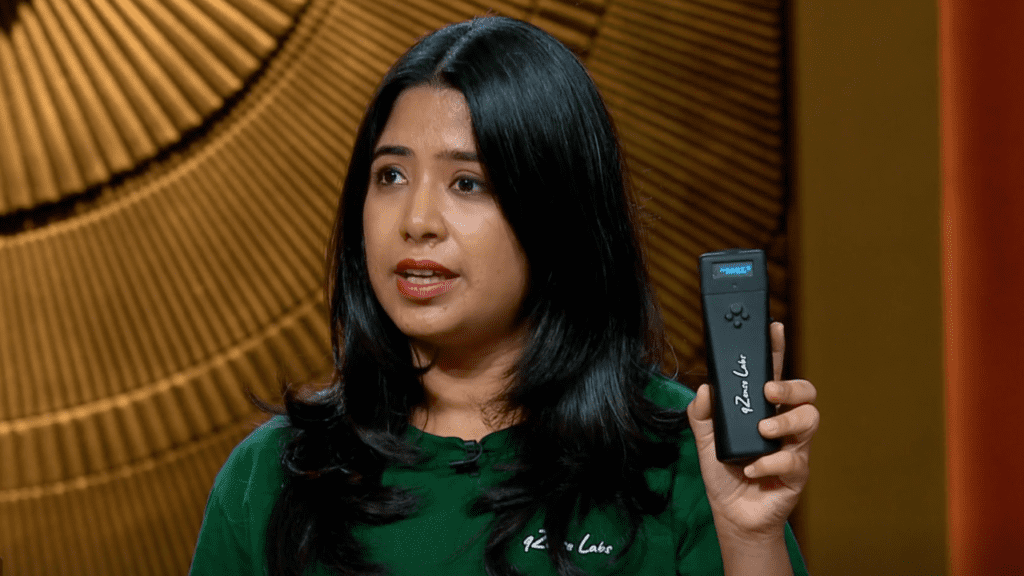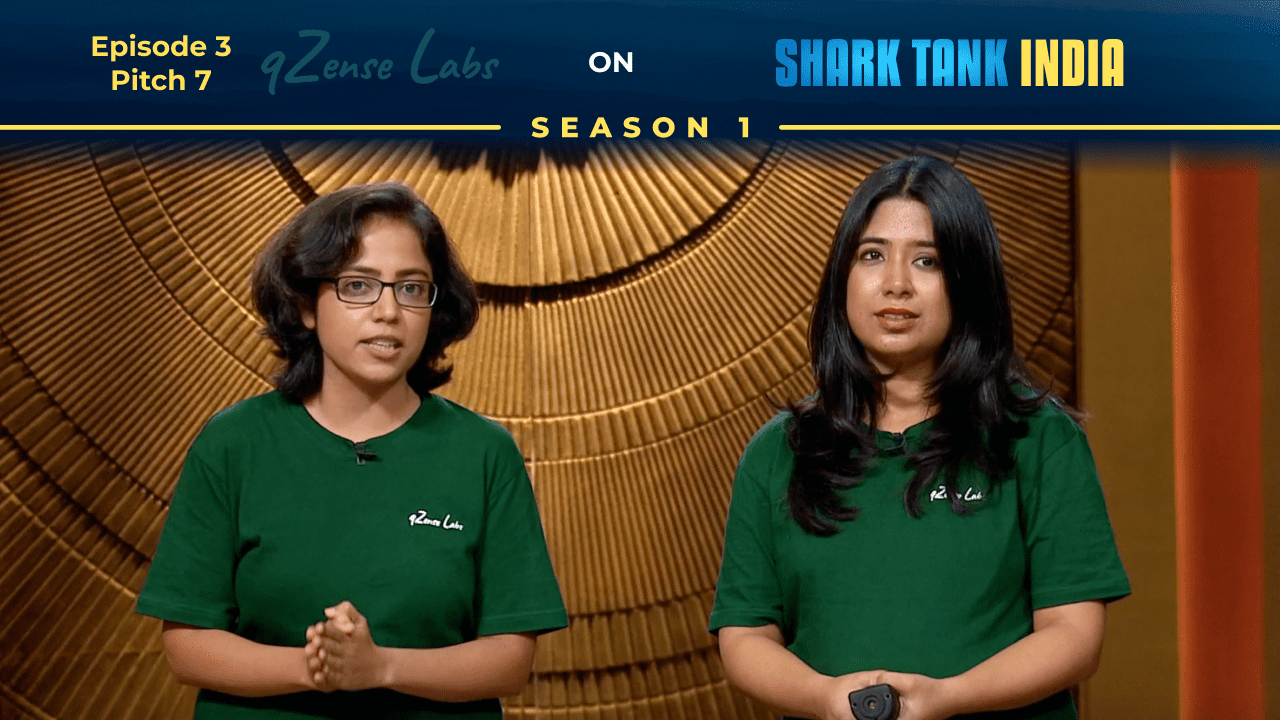A tech business called qZense Labs focuses on creating intelligent sensors and systems for determining the quality and freshness of perishable foods. Their solution uses data analytics and IoT (Internet of Things) technology to evaluate elements like temperature, moisture content, and smell—all of which are critical in determining whether food is going bad.
qZense Labs presented an innovative technology to detect food freshness and reduce waste in the supply chain using IoT sensors and data analytics. The founders sought ₹1 crore for 0.25% equity, valuing the company at ₹400 crores. The pitch highlighted the importance of innovation in tackling inefficiencies in the food supply chain but faced challenges due to its high valuation.

Company Name: qZense Labs
Founder: Food Freshness Detection Technology
City: Bengaluru
Product: Food Freshness Detection Technology

Highlights
- Their innovation addresses a significant problem in India, where a large percentage of perishable foods go to waste due to inadequate storage and quality control mechanisms.
- The valuation of ₹400 crores raised immediate concerns among the sharks. They felt the company was overvaluing itself considering its early stage and lack of significant revenue or widespread market adoption.
- The sharks questioned whether the technology was ready for mass market implementation. They pointed out the challenges of integrating such technology into the fragmented and cost sensitive Indian food supply chain.
- While the technology was impressive, the sharks were concerned about its scalability and how quickly it could be adopted by the industry, given the cost and technical sophistication of the solution.
- The sharks suggested that the product might cater to a niche market rather than having broad appeal across the entire food supply chain.
Pitch Details
Ask: ₹1 Crore for 0.25% equity (₹400 crore valuation).
Deal: No Deal
Conclusion
The qZense Labs pitch showcased the potential of technology to address critical issues in India’s food industry. However, the lack of demonstrated scalability and a high valuation prevented the founders from securing a deal. Their journey highlighted the importance of aligning valuation with market realities and proving the practicality of innovative solutions to gain investor confidence. The product was inventive, but no agreement was reached. The business needed greater traction, shown scalability, and market validation before it could justify such a high valuation, according to the sharks, who all agreed that the valuation was unrealistic.
Significant findings
- Valuation Must Reflect Market Stage
- Focus on Market Adoption
- Scalability is Critical
- Innovation is Valued, but Execution Matters






